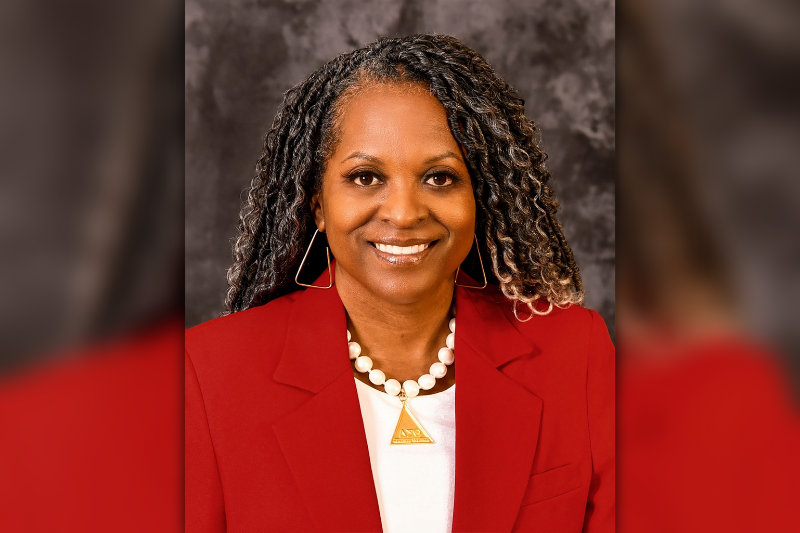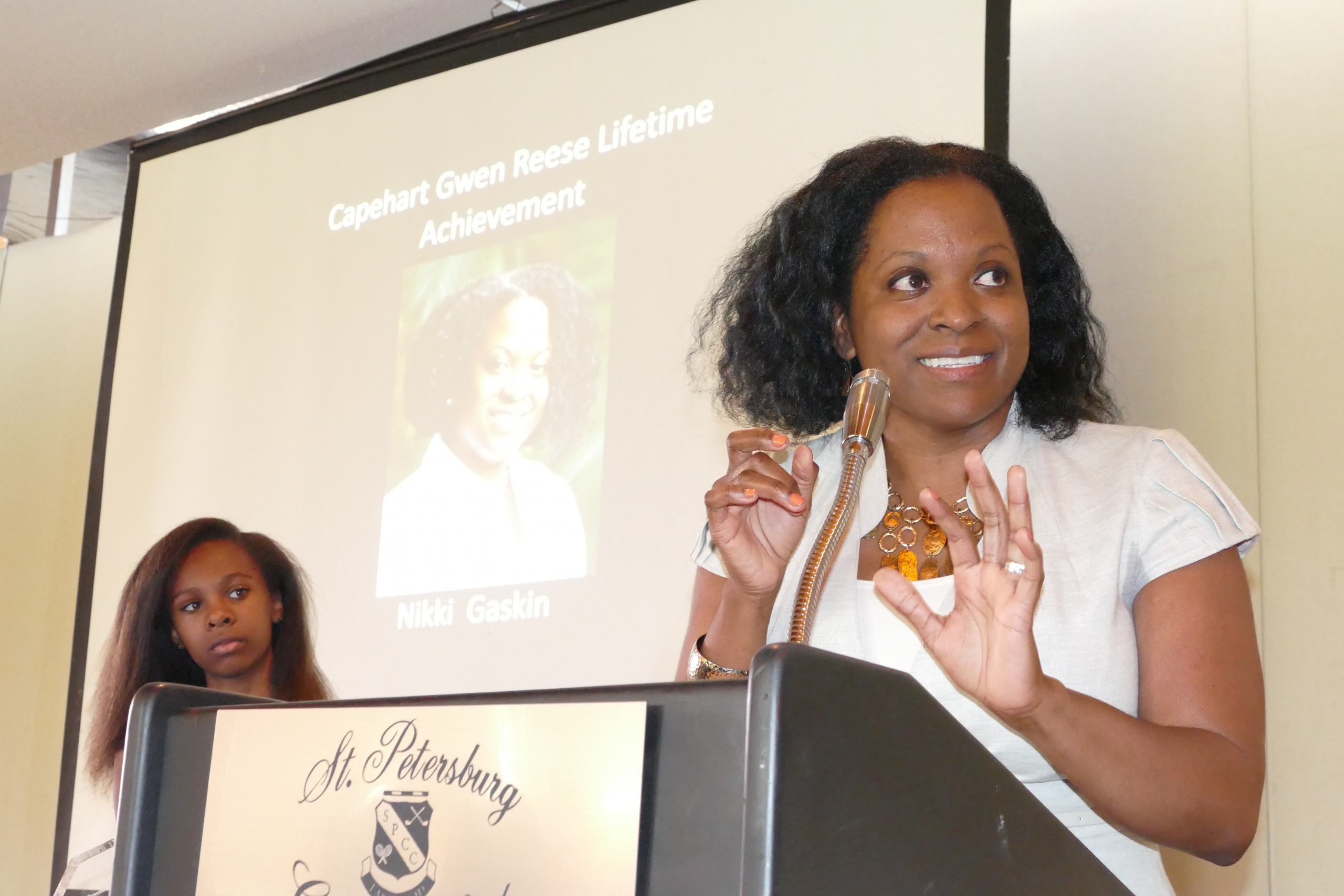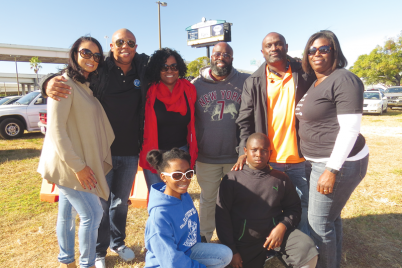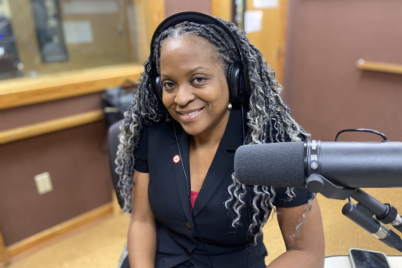Nikki Gaskin-Capehart is the first woman to lead the Pinellas County Urban League.
BY J.A. JONES | Staff Writer
ST. PETERSBURG — The signs of a sustainable future for any city, county, and region include how many young leaders are in positions of influence and decision-making. You can bet that any agency, body of government or public institution without leaders under the age of 62 (retirement age for the luckiest Americans) is behind the times.
With the appointment of Nikki Gaskin-Capehart as the new head of the Pinellas County Urban League, the agency has catapulted itself into a new and hopeful era because the native daughter of St. Pete is part of the county’s younger, newer wave of leaders. But more importantly, she’s a deep listener, and that’s a positive sign for the county’s future.
It’s because the ability to listen deeply — without judgment or self-motivated concern — opens doors, clears paths for real change and welcomes a broader selection of the community to the table. When her down-to-earth quality is mentioned, Gaskin-Capehart quietly acknowledges, “I’ve heard people say to me over the years that I’m really approachable.”
While she’s been told that she can “connect to various demographics in the community,” one gets the sense that, while this is a rare quality in today’s leadership, for Gaskin-Capehart, it’s the only way to be. She gives credit to her family and her perspective.
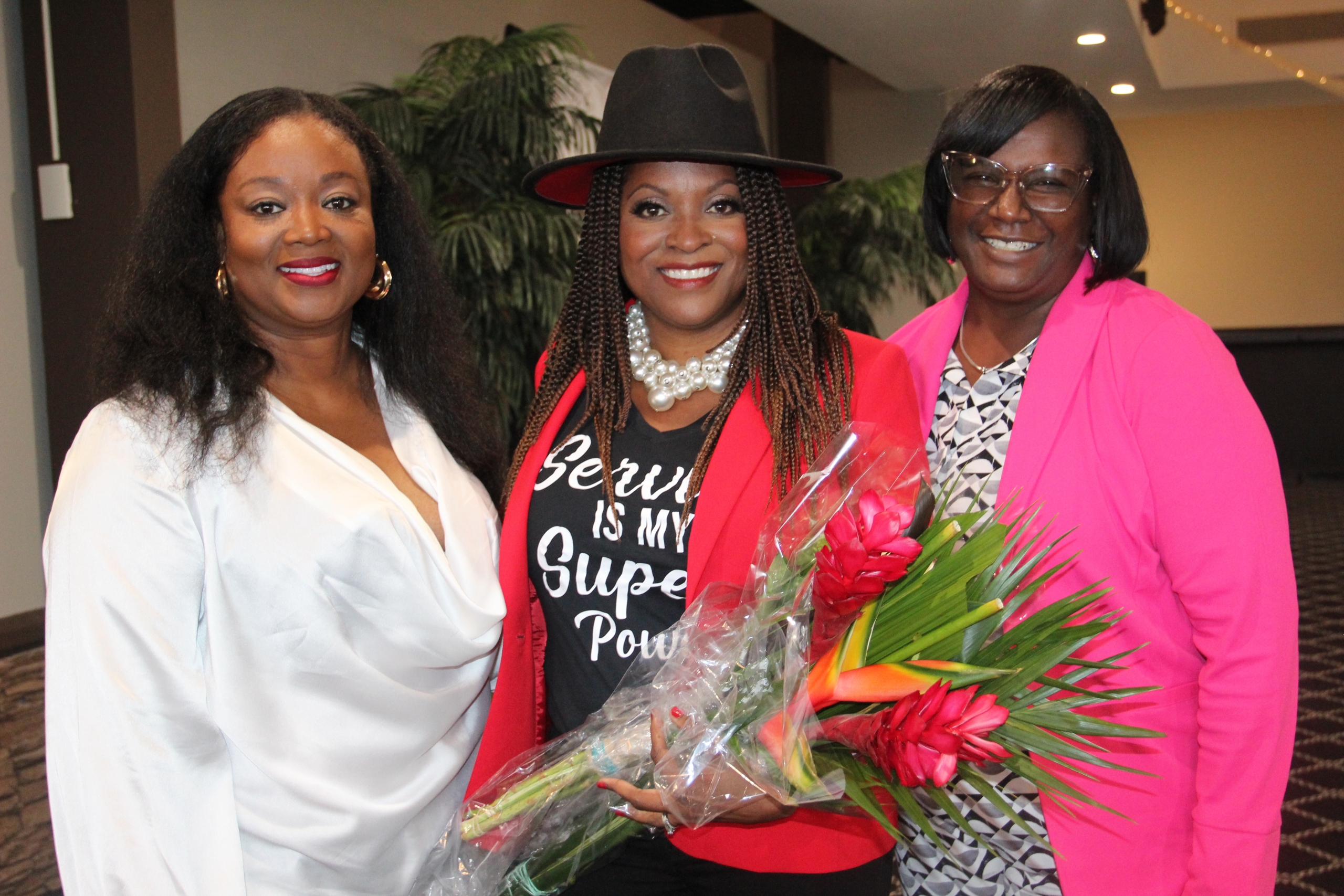
Nikki Gaskin-Capehart kicked off her new business, The NGC Team, to great fanfare with a launch party on March 31, 2022, at the St. Petersburg Country Club.
“That’s who I am at my core. I see myself in everybody, to a degree.”
If this is a foundational character trait for the 50-year-old wife, mother, businesswoman, and now president and CEO of one of the largest nonprofit institutions in the region, she is keenly aware that much of who she has become is due to the impact of from her grandmother, Mrs. Rosa Lee Graham.
“I know that so much of my childhood has had an impact on where I am today,” affirmed Gaskin-Capehart, who is well-known for having brought a down-to-earth professionalism to the role she held most recently as director of Urban Affairs for the City of St. Pete for eight years.
She said it’s because she remembers the years she spent hearing people at school and the community refer to her as “the flip lady’s granddaughter.”
Gaskin-Capehart relayed how, in many traditional Black neighborhoods, the flip lady was a “community mother figure who sold snacks, candy and the frozen drinks called “flips.”
“One of the most popular ones was a pineapple flip, made with pineapple juice and sugar – and then real pineapples at the bottom of the cup. And then you froze it.”
Her grandmother was the “flip lady on 24th,” and as the flip lady’s granddaughter, she helped manage the store in the back of their house. Gaskin-Capehart said it was there she developed a love for the community because her grandmother would not turn anyone away.
“If kids didn’t have money, she would give them a piece of candy or something like that; she was always feeding people because she cooked a lot.”
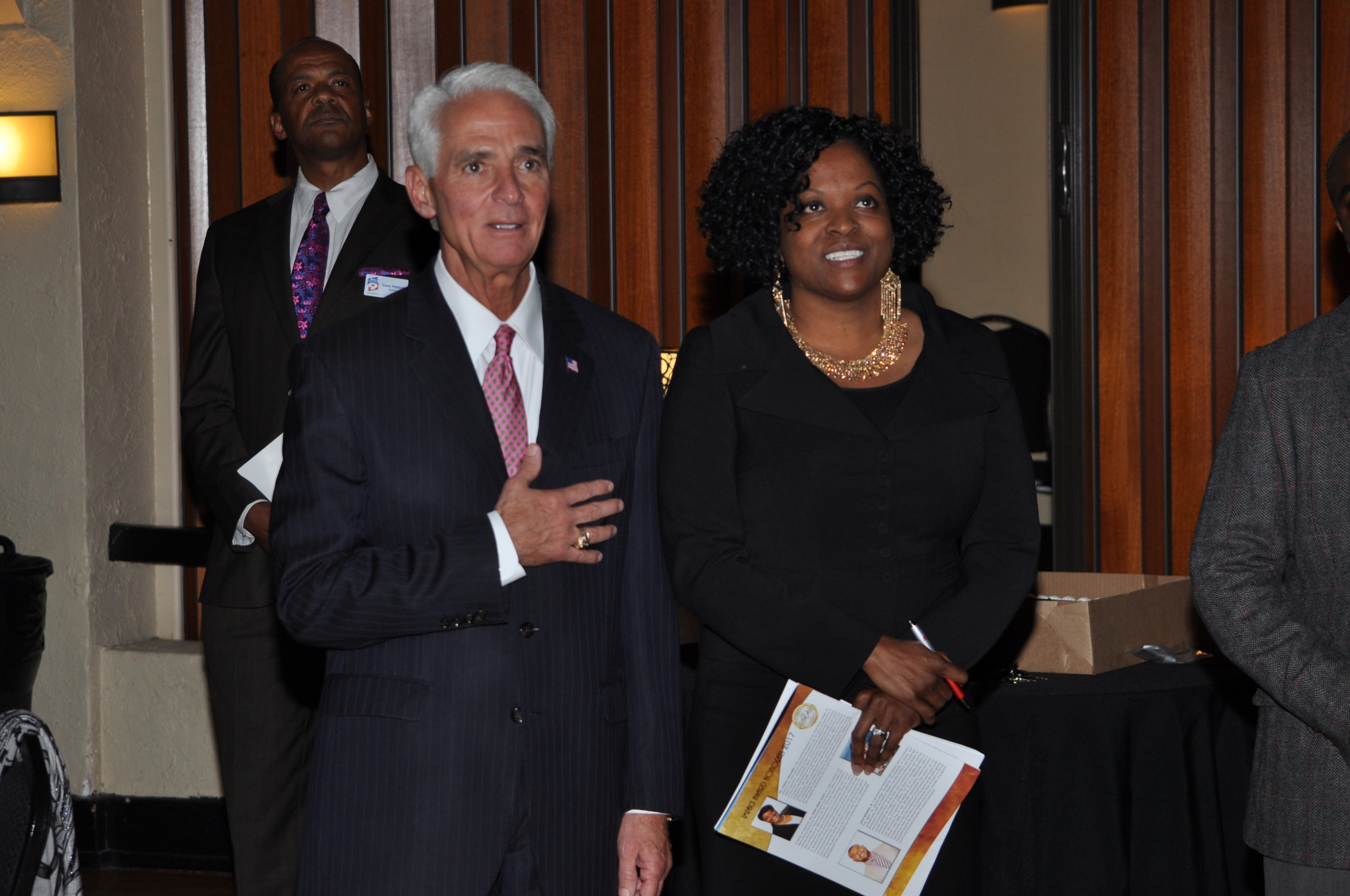
Former Gov. Charlie Crist and Nikki Gaskin-Capehart at The Weekly Challenger’s 50th anniversary event.
For Gaskin-Capehart, the experience instilled two things in her: an entrepreneurial drive and being in service to the community.
Bringing both traits to her new role as president and CEO of the Urban League, she recalled that her first awareness of PCUL started in high school with James O. Simmons, its first president and CEO.
Calling him a “major, iconic leadership figure” who became a “role model from afar,” the newly appointed president noted that while she was in high school, she heard people speak about him, and without knowing much about what the Urban League did, quickly became aware of Simmons’ profound impact on those around him.
“I knew back then how much of a community leader he was and how important he was to so many people in his role as president, never ever thinking, of course, I would end up in the same role many years later. But I always felt a sense of pride when I saw him — just knowing that he represented our community well with this statesmanship.”
The qualities of leadership that “statesmanship” implies are the same ones that Gaskin-Capehart naturally embodies. “For me, it definitely is something where you know that you can count on that person for consistent leadership; they are reliable and professional at the same time. And for me, their work is purpose-driven.”
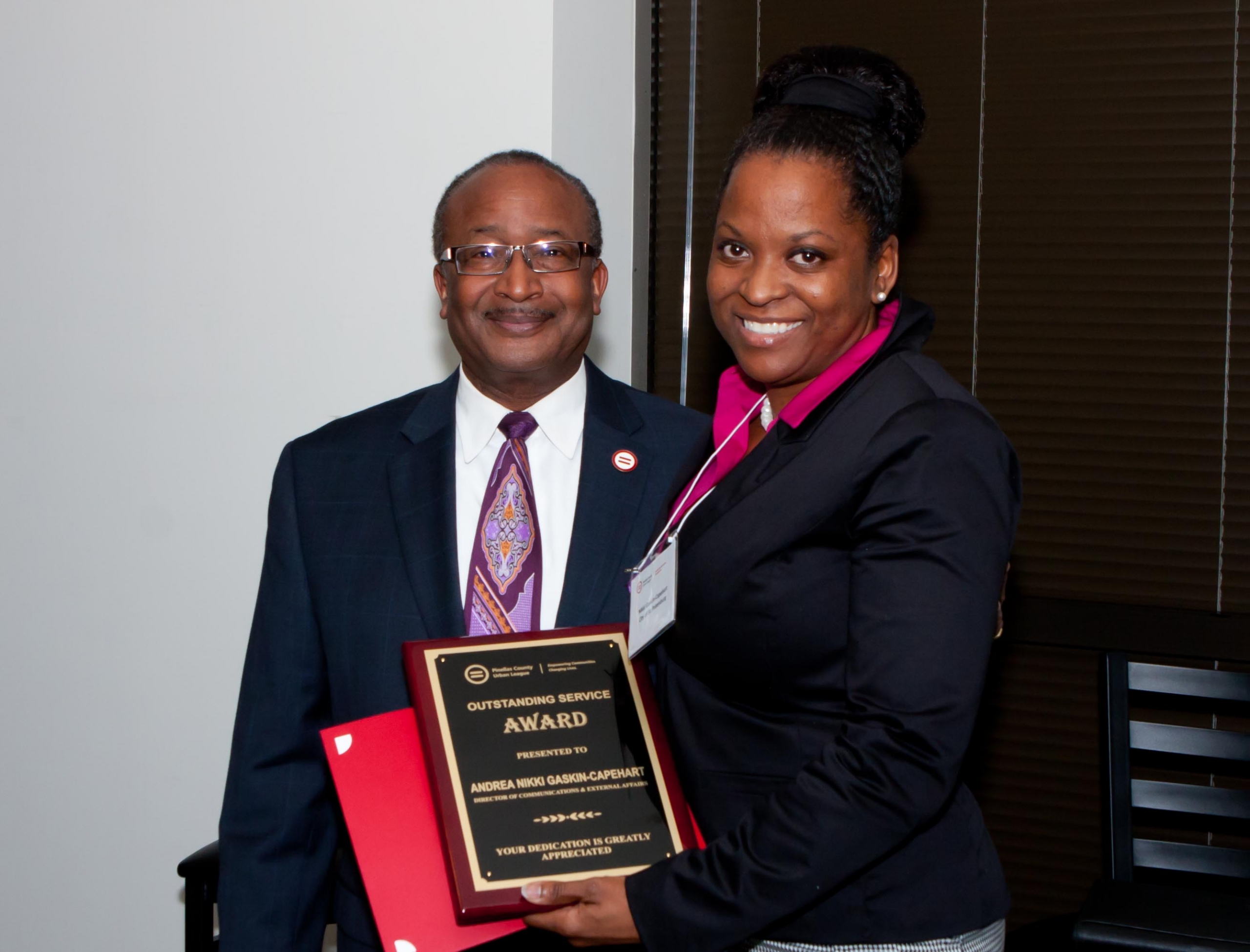
Nikki Gaskin-Capehart assumed the role of president and CEO left vacant after the death of Rev. Watson Haynes II.
Another statesman she holds in high regard is the late Rev. Watson Haynes, II, whom she worked under for years as the director of communications and external affairs for the PCUL.
“I am honored to have been mentored and supported over the years by Rev. Watson L. Haynes II, one of the most genuine, humble, thoughtful, professional, and passionate leaders I have ever met,” she averred. “I now realize that he was preparing me for this role long before he ever shared his confidence in me to be his successor.”
Over the years, she’s held many different roles — from business owner, tax professional, and owner of a United States Postal contract station — to working with Partnership for a Healthier Pinellas, Congresswoman Kathy Castor and Congressman Jim Davis. It has, she said, contributed to helping her become an “astute observer of people.”
“I do my best to learn from people, not just what they say, but what they don’t say, and what they do, and how they treat others. You must have a certain genuine authenticity that people can see and know you are genuinely interested in helping them. Those qualities are really important to me as a leader.”
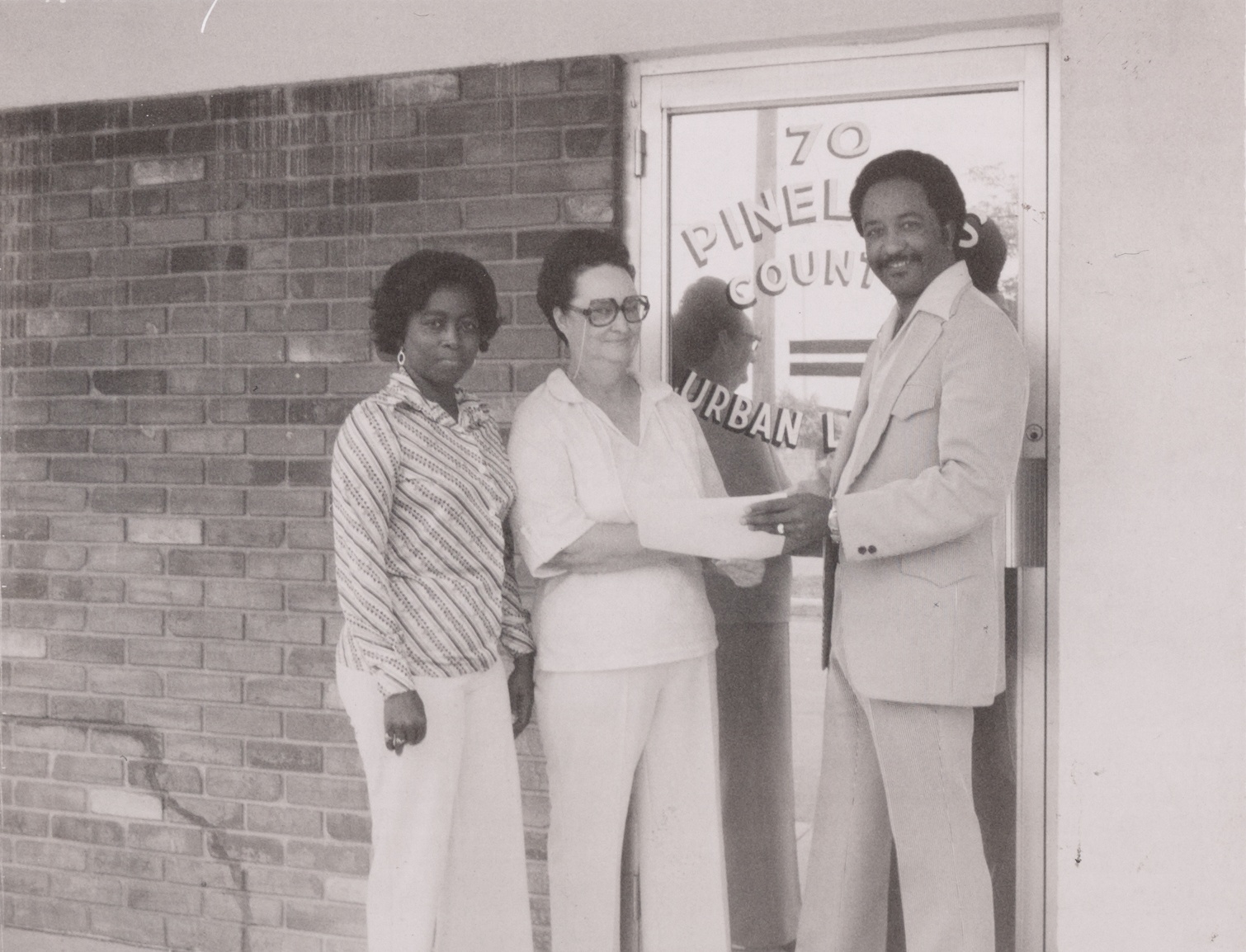
James O. Simmons (right) was the first president of the Pinellas County Urban League, which opened in 1977. Pictured here circa 1978.
Gaskin-Capehart noted the community members’ work to address community issues and form the Pinellas County arm of the Urban League in 1977 – including Charlotte McCoy, Jean Anderson, John Hopkins and Morris W. Milton. She returned to the impact of Simmons, noting that his leadership was “so good for our community. And trailblazing, at a time when we needed that, to lead the organization.”
Of course, looking at the country’s state, it becomes apparent we’re at a crossroads in many ways, which means that “trailblazing” leadership is needed today. And as the first woman in her role, Gaskin-Capehart can now definitely add that adjective to her list.
But she’s also aware that it will take the work of many kinds of leaders working together to manage the rocky paths ahead.
“We have to work with leaders across the board to make sure that we are all positioned properly to provide what services and support our community needs. The Urban League certainly can’t do it alone. The City of St. Petersburg can’t do it alone; the City of Clearwater can’t do it alone; the county commission can’t do it alone; the pastors can’t do it alone. We need football coaches; we need the employers and the CEOs of the corporations who can provide housing for their employees now. We need all of that when it comes to how we can have the impact that we need around equity, particularly economic equity.”
She becomes excited as she discusses the organization’s strategic plan, which she is calling PCUL Vision 2030. The PCUL staff has already started the strategic planning with Collaborative Labs, thanks to PCUL’s incoming board president, Dr. Tonjua Williams.
The strategic plan will include getting input from the board and the community, as well as finding out how the agency should be moving forward. Gaskin-Capehart wants to be sure PCUL is planning with the community instead of for the community.
And while, at less than 30 days in office, she acknowledges that it’s too early to reveal much more, she is committed to bringing the same kind of attention to the well-being of women and families that has been a hallmark of her work.
“Many of our clients, the bulk of our clients over the years, have been women, Black women in particular. And girls are vital to me, and we want to make sure that we are giving them good role models and mentors to be able to connect to.”
After working for many years with girls through various programs, most recently the My Sister’s Keeper initiative with the city, Gaskin-Capehart is passionate about instilling emotional intelligence in youth.
“We’re not saying that you should not have feelings. You need to be in tune with those feelings. Before I took this role, I started doing some training with [youth] on emotional intelligence. We need to teach that as early as possible.”
She acknowledged the power of the “sister circle” and getting input from mentors and coaches in her own life, and she is looking forward to bringing support initiatives for young women to PCUL.
“Even for me, all of my sister circles are so important because they are peer coaches to me; they’re mentors that I reach out to for certain things because they have different areas of expertise. All of those things are important for us in role modeling to young ladies. Basically, [letting them know] how we’ve been there, we understand some of the challenges…and we’re not here to beat you up. We’re here to support you.”

